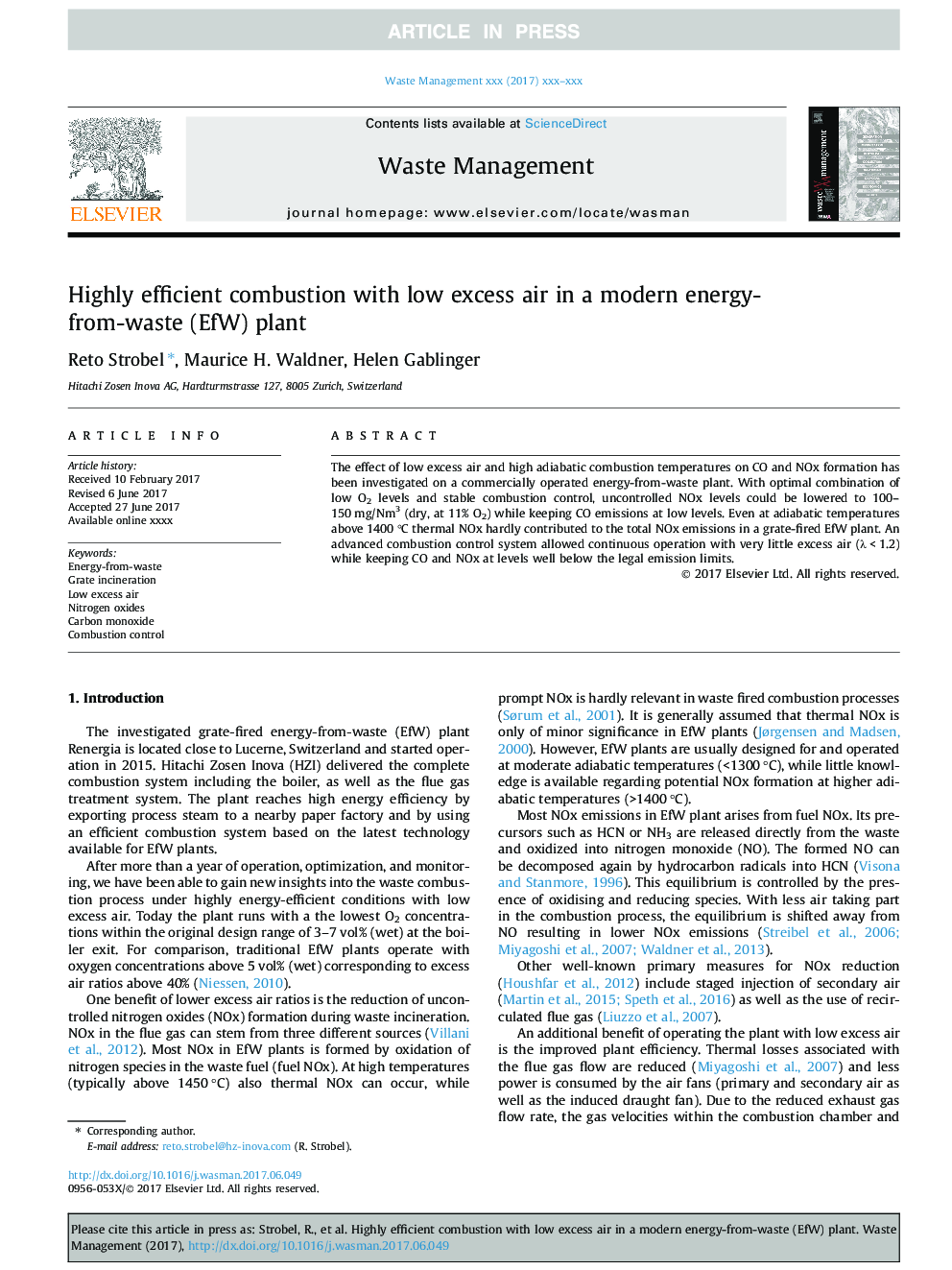| Article ID | Journal | Published Year | Pages | File Type |
|---|---|---|---|---|
| 8869954 | Waste Management | 2018 | 6 Pages |
Abstract
The effect of low excess air and high adiabatic combustion temperatures on CO and NOx formation has been investigated on a commercially operated energy-from-waste plant. With optimal combination of low O2 levels and stable combustion control, uncontrolled NOx levels could be lowered to 100-150 mg/Nm3 (dry, at 11% O2) while keeping CO emissions at low levels. Even at adiabatic temperatures above 1400 °C thermal NOx hardly contributed to the total NOx emissions in a grate-fired EfW plant. An advanced combustion control system allowed continuous operation with very little excess air (λ < 1.2) while keeping CO and NOx at levels well below the legal emission limits.
Related Topics
Physical Sciences and Engineering
Earth and Planetary Sciences
Geotechnical Engineering and Engineering Geology
Authors
Reto Strobel, Maurice H. Waldner, Helen Gablinger,
